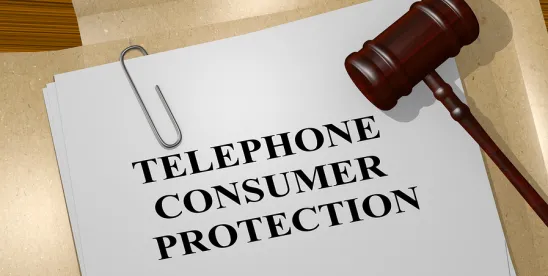Just when you think an issue is resolved here in TCPAWorld, it crops back up again.
It had been nearly four months to the day–an eternity in TCPA circles–since a district court had last applied the 2003 or 2008 FCC Predictive Dialer ATDS rulings. See Jiminez v. Credit One Bank, N.A., No. 17 CV 2844-LTS-JLC, 2019 U.S. Dist. LEXIS 53096 (S.D.N.Y. March 28, 2019). Every decision since Jiminez had determined that those rulings were set aside by the D.C. Circuit Court of Appeal in ACA, Int’l. An unsurprising result since that is exactly what the appellate court did as seven separate district court opinions have held over the last four months (although reaching different results on the ultimate functionalities of an ATDS).
Nonetheless, a magistrate judge in the Middle District of Florida just reached back to the old FCC rulings in fashioning a report and recommendation in Denova v. Ocwen Loan Servicing, Case No. 17-cv-02204, Doc. No. 85 (M.D. Fl. July 26, 2019). In that ruling the Court assessed the merits of cross-summary judgment motions by the parties on TCPA, FDCPA and FCCPA claims. Although the court determined that questions of fact on consent, revocation and intent to harass ultimately thwarted judgment to any party, the Court first found that the Plaintiff was entitled to a finding in her favor on the issue of whether or not an automated telephone dialing system (“ATDS”) was utilized.
For the uninitiated–and you’re all initiated by now– the TCPA defines the phrase ATDS as equipment with the capacity to store or produce numbers to be dialed using a random or sequential number generator. Since this definition plainly requires the use of a random or sequential number generator, the TCPA became largely irrelevant by about the late 90s. The FCC, seeking to cut down on robocalls using the only statute it had at its disposal, elected to expand the definition of the phrase ATDS in 2003 and again in 2008 by erasing the requirement of random or sequential number generation and focusing, instead, on automated dialing. All of this work was ultimately struck down by the D.C. Circuit Court of Appeal in 2018 after the FCC issued a conflicting ruling by the FCC in 2015 that seemed to require random and sequential number generation again, but also found that any software enabled dialing device had the capacity to dial that way since computers are tricky.
Since the FCC’s 2015 ruling was struck down the district courts have gone bananas (legal term of art) trying to figure out whether the appellate court also struck down the 2003 and 2008 rulings as part of its order. That question was seemingly answered when the Ninth Circuit Court of Appeal responded with an “of course the earlier rulings were struck down” (paraphrase) in Marks. Since Marks was handed down, the question has mostly been whether the TCPA, as written, unambiguously requires random or sequential number generation (and of course it does, which is why the FCC had to expand the statute to begin with) or ambiguously includes dialers that merely store and dial from lists automatically. That battle is very much ongoing although a bare majority of cases have sided with a determination that the statute means what it says.
Nonetheless the Denova court throws caution to the wind and reaches back to the 2008 predictive dialer ruling, concluding that it survived ACA Int’l and remains binding on the district court. It gets there through a fairly cursory review of the case law and a determination that “[m]ore courts in this district hold that the FCC’s pre-2015 declaratory rulings and orders remain valid after ACA International.” While that is technically true the Court overlooks that: i) all of those rulings pre-date the Ninth Circuit Court of Appeal determining that ACA Int’l did set aside those rulings; and ii) several of the district court rulings cited by Denova actually held that the human intervention component of the 2003 ruling survived ACA Int’l for the sole purpose of determining that a dialer was not an ATDS. That is to say–the bulk of these rulings did not find that the predictive dialer component of the FCC’s 2003 and 2008 rulings survived as Denova did.
Nonetheless, the Court made its conclusions of law and since it was undisputed that the defendant used a predictive dialer to contact the Plaintiff, the use of an ATDS was just-so-swiftly determined in the Plaintiff’s favor. Now all the Plaintiff has to do is convince a jury that she actually revoked consent as she claims–despite business records that seem to refute that assertion–and/or convince the jury that the Defendant intentionally harassed her–despite business records that seem to refute that assertion.
Why would a Plaintiff waste time pursuing a federal lawsuit over these attempted phone calls? $400k would be the minimum judgment she would collect if she prevails in this case. And if she hits on the FDCPA claim she stands to recover her attorney’s fees as well.
Say it ain’t so.




 />i
/>i

